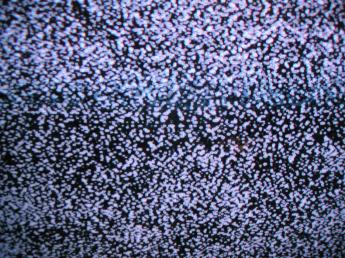Grassroots Distributed Open-Source Media Is The Fourth Estate Major Threat
The major networks?
"They are nothing more than assemblers and distributors of content, once you get down to it. Up until just 2003 or so, it was a very "hard problem" to create and distribute quality video feed to the masses.
Now, that has changed.
The December 26, 2004, earthquake and tsunami were media watersheds in many ways. For the first time, an event of global significance was caught by the self-assembling distributive journalists around the globe.
Wikipedia has assembled the videos of that event, and most people either caught the original videos of the event online, or subsequently turned to the Internet for detailed narratives of the event."
Have established news media reason to be concerned?
You bet.
But how long will it take to today's media giants to realize this fast growing threat and adjust to this fast changing scenario?
In an insightful article entitled "Open source is disrupting the fourth estate" by Christian Einfeldt, published on the very popular Linux technology focused site Mad Penguin, Einfeldt identifies key potential disruptive technologies, providing recent examples, and comments on how they might become serious obstacles to the ambitions of the established global media powers.

Photo credit: Aaron Wynn
Einfeldt lays out his thinking along the following lines:
- Grassroots media organizations, such as IndyMedia
- GNU/Linux-running screen devices, such as Sony's new portable broadband Location Free TV, which can receive both TV signals and Internet signals - enabling the user to channel-surf between TV and the Net back on the same device
- Open access collaborative knowledge bases, such as Wikipedia
- Soon-to-available iPod-type mobile phones, which use GNU/Linux to beam your music wirelessly around your home, and will allow you to access content over your browser from your music 'locker'
- The Creative Commons, which enables and promotes the fair licensing and distribution of the content of independent publishers of text, audio and video
- Open source video editors, like Jahshaka
In conclusion, Einfeldt boils his views down to the following formula:
"Podcasting + Location Free TV = Trouble for Hollywood"
"Soon, we will see online communities producing, creating, and distributing their own video feeds. I personally don't think that Google news will ever push the New York Times into irrelevance, as is the premise of the very cool and very slick flashmedia video, EPIC 2014.
Much of what is found on the Internet is of questionable value, so there will always be a need for professional reporters, editors, producers, directors, and actors, and commercial entertainment aggregators like the major broadcast news networks.
But as time goes by, their control of the news and entertainment industries will certainly shrink, and open source once again will have radically changed the way that we see the world."
Good food for thought.
Reference: Christian Einfeldt - Mad Penguin [ Read more ]


blog comments powered by Disqus